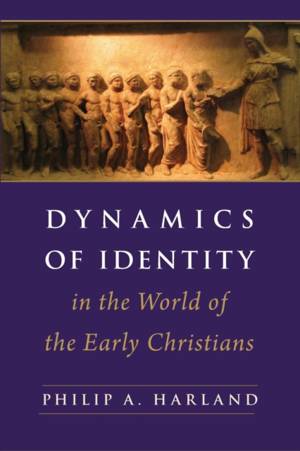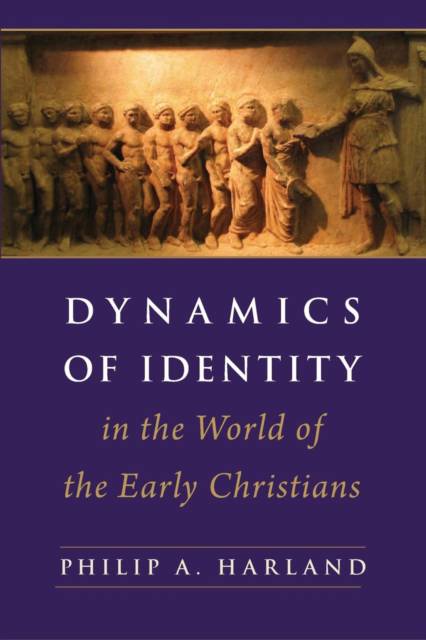
- Retrait gratuit dans votre magasin Club
- 7.000.000 titres dans notre catalogue
- Payer en toute sécurité
- Toujours un magasin près de chez vous
- Retrait gratuit dans votre magasin Club
- 7.000.0000 titres dans notre catalogue
- Payer en toute sécurité
- Toujours un magasin près de chez vous
Dynamics of Identity in the World of the Early Christians
Associations, Judeans, and Cultural Minorities
Philip A Harland
Livre broché | Anglais
88,45 €
+ 176 points
Format
Description
This study sheds new light on identity formation and maintenance in the world of the early Christians by drawing on neglected archaeological and epigraphic evidence concerning associations and immigrant groups and by incorporating insights from the social sciences. The study's unique contribution relates, in part, to its interdisciplinary character, standing at the intersection of Christian Origins, Jewish Studies, Classical Studies, and the Social Sciences. It also breaks new ground in its thoroughly comparative framework, giving the Greek and Roman evidence its due, not as mere background but as an integral factor in understanding dynamics of identity among early Christians. This makes the work particularly well suited as a text for courses that aim to understand early Christian groups and literature, including the New Testament, in relation to their Greek, Roman, and Judean contexts.
Inscriptions pertaining to associations provide a new angle of vision on the ways in which members in Christian congregations and Jewish synagogues experienced belonging and expressed their identities within the Greco-Roman world. The many other groups of immigrants throughout the cities of the empire provide a particularly appropriate framework for understanding both synagogues of Judeans and groups of Jesus-followers as minority cultural groups in these same contexts. Moreover, there were both shared means of expressing identity (including fictive familial metaphors) and peculiarities in the case of both Jews and Christians as minority cultural groups, who (like other "foreigners") were sometimes characterized as dangerous, alien "anti-associations". By paying close attention to dynamics of identity and belonging within associations and cultural minority groups, we can gain new insights into Pauline, Johannine, and other early Christian communities.
Inscriptions pertaining to associations provide a new angle of vision on the ways in which members in Christian congregations and Jewish synagogues experienced belonging and expressed their identities within the Greco-Roman world. The many other groups of immigrants throughout the cities of the empire provide a particularly appropriate framework for understanding both synagogues of Judeans and groups of Jesus-followers as minority cultural groups in these same contexts. Moreover, there were both shared means of expressing identity (including fictive familial metaphors) and peculiarities in the case of both Jews and Christians as minority cultural groups, who (like other "foreigners") were sometimes characterized as dangerous, alien "anti-associations". By paying close attention to dynamics of identity and belonging within associations and cultural minority groups, we can gain new insights into Pauline, Johannine, and other early Christian communities.
Spécifications
Parties prenantes
- Auteur(s) :
- Editeur:
Contenu
- Nombre de pages :
- 256
- Langue:
- Anglais
Caractéristiques
- EAN:
- 9780567111463
- Date de parution :
- 19-11-09
- Format:
- Livre broché
- Format numérique:
- Trade paperback (VS)
- Dimensions :
- 152 mm x 231 mm
- Poids :
- 408 g

Les avis
Nous publions uniquement les avis qui respectent les conditions requises. Consultez nos conditions pour les avis.






